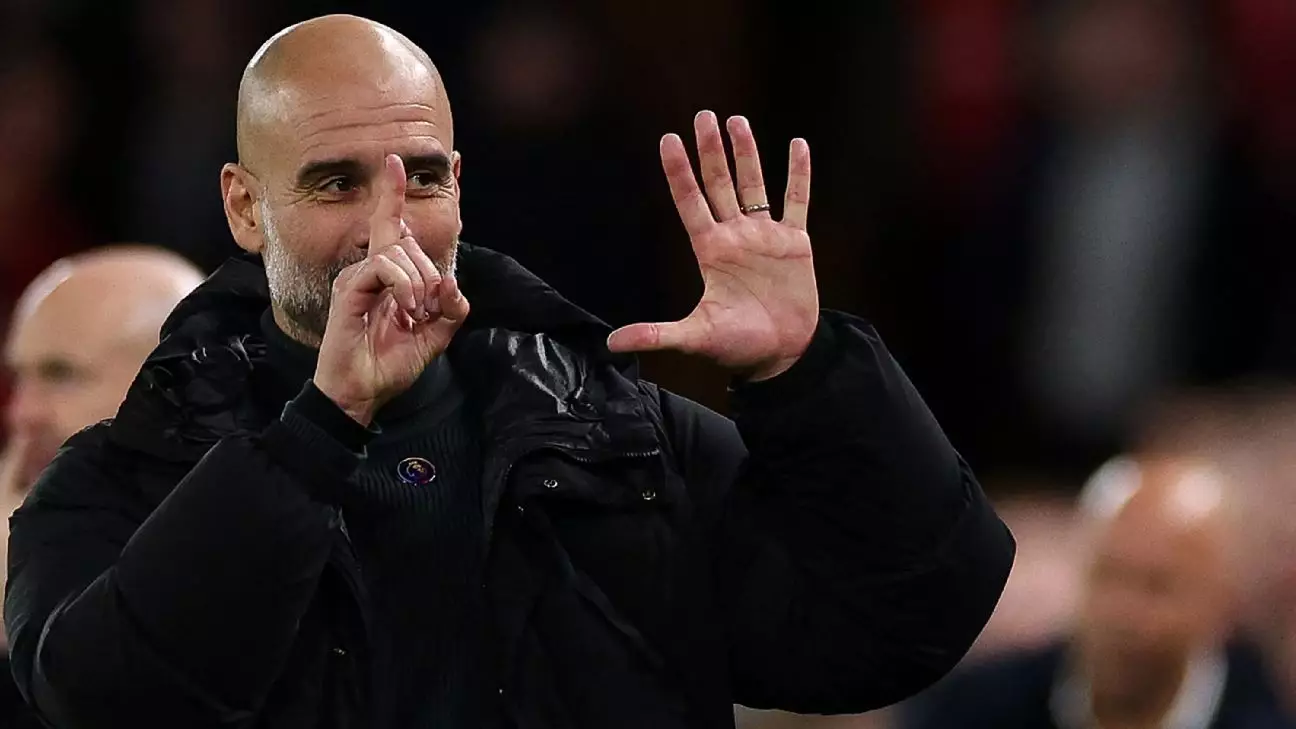In the world of football, few rivalries capture the imagination quite like that between managers Pep Guardiola and José Mourinho. Their differing philosophies, coaching styles, and personal clashes have been the fodder of headlines for years, generating fervor among fans and media alike. Recently, a lighthearted exchange concerning Premier League titles has reignited discussions surrounding both managers, inviting scrutiny into the underlying tensions and implications of their competitive legacy.
The spark for the latest exchange was Guardiola’s flippant remark about his six Premier League titles, which he playfully juxtaposed against Mourinho’s three. While the context appeared to be rife with humor, the undercurrents ran deep. Guardiola’s proclamation, made during a press conference, was met with a sharp retort from Mourinho, who invoked the integrity of his own accomplishments. The dynamic of two highly regarded managers measuring their success through the lens of their title counts invites a broader examination of what constitutes true merit in a game marred by intense competition and controversy.
Underlying this lighthearted banter is a darker narrative—allegations of financial misconduct that have loomed over Manchester City since the financial rules came under scrutiny. Guardiola’s insistence that “we are innocent until proven guilty” signifies not only a defensive posture regarding the club’s reputation but also speaks to the pressure exerted upon clubs at the pinnacle of football. City has consistently denied any wrongdoing, but the specter of investigation casts a long shadow. Mourinho’s jibe regarding “150 court cases” hints at the complex intersection of sport and legality that could potentially reshape both heritage and perception.
Mourinho’s historical robustness as a manager lends credence to his assertions of performing “fairly and cleanly.” His past encounters with Guardiola have often ignited a fiercer rivalry and recently, his comments have taken on a more strategic nuance. He has expressed a desire for another Premier League medal should City be stripped of their titles, alluding to previous seasons where such scenarios could have significantly altered the landscape of accolades in English football. The implications of this rivalry are not just personal; they reflect the broader stakes wrapped up in football’s integrity and reputation.
In a turn of events, Guardiola offered a public apology for any offense his joke might have caused. This gesture of humility offers insight into the often razor-thin line separating sport from entertainment. It’s a reminder that while the figures may represent actual achievements, the emotions tied to these interactions are deeply rooted in ego, pride, and a craving for validation. Guardiola’s acknowledgment that both he and Mourinho could eventually “sit in the table” of managerial greats alongside legends like Sir Alex Ferguson and Arsène Wenger highlights a shared legacy that is as much about mutual respect as it is about rivalry.
As this saga unfolds, it raises fundamental questions about what it means to succeed in football. The debate over how to evaluate managerial achievements is not restricted to mere statistics. It encompasses the narratives we create around personalities, integrity, and historical context. In an age where clubs can face existential crises or ride waves of success based on decisions made off the pitch, the tension between Guardiola and Mourinho continues to serve as a microcosm of larger themes plaguing modern football.
The recent exchange between Guardiola and Mourinho transcends mere statistics about Premier League titles. It encompasses the complexities of modern football, rife with legal disputes and a quest for authenticity amid ethical scrutiny. Their rivalry, fueled by competitive instincts and unique coaching philosophies, reveals a broader narrative about legacy, reputation, and the essence of sport itself. As Manchester City and their manager navigate this challenging landscape, it remains to be seen how such interpersonal dynamics will shape the future of both individuals and the clubs they represent.

